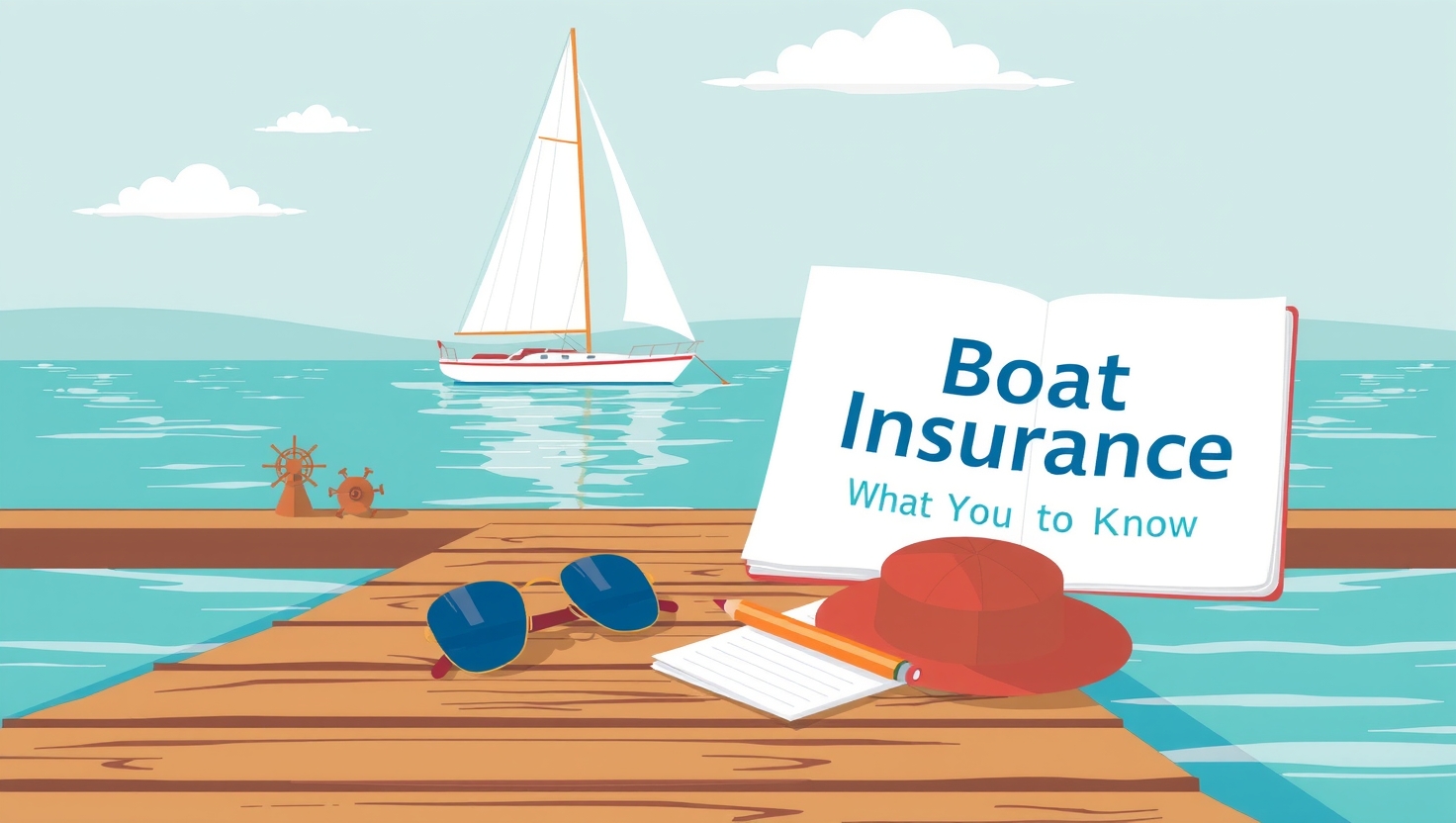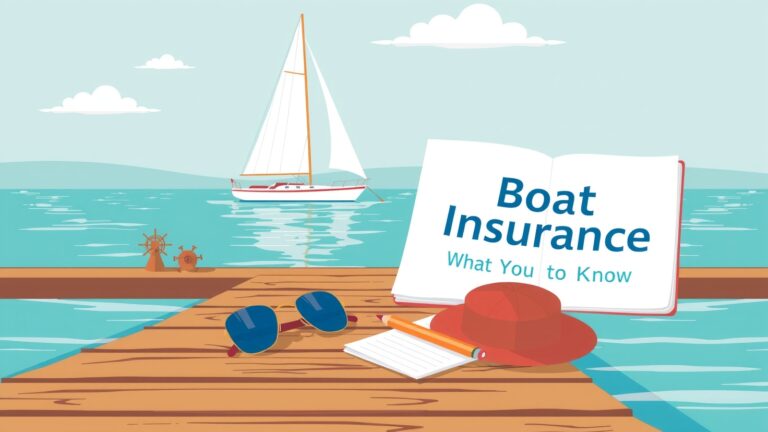Boat Insurance: What You Need to Know
Owning a boat brings a sense of freedom and adventure—whether you enjoy peaceful fishing trips, leisurely cruises, or thrilling water sports. However, just like any valuable asset, your boat needs protection. Boat insurance ensures that you can enjoy the water with peace of mind, knowing you’re covered in case of unexpected events.
In this guide, we’ll explore the basics of boat insurance, what it typically covers, and how to choose the right policy for your needs.

Why Do You Need Boat Insurance?
While some homeowners’ insurance policies may offer limited coverage for small boats, they often exclude larger or more powerful vessels. A dedicated boat insurance policy provides broader protection, including accidental damage from collisions, storms, or fire, as well as coverage for theft, liability, medical payments, and uninsured boaters. Even if your state doesn’t legally require boat insurance, marinas and lenders often do. More importantly, it safeguards your investment and reduces financial risk.
What Does Boat Insurance Cover?
Boat insurance policies vary, but most include physical damage coverage, which protects your boat from accidents, fires, or storms. You can often choose between agreed value (a predetermined payout if the boat is totaled) or actual cash value (which accounts for depreciation). Liability insurance covers costs if you’re at fault for injuries or property damage, while medical payments coverage handles medical bills for you and your passengers. Uninsured boater protection is also essential if another boater causes damage but lacks sufficient insurance.
Additional optional coverages may include emergency towing, personal property protection for gear and electronics, and wreck removal in case your boat is severely damaged.
Factors That Affect Your Boat Insurance Costs
Several factors influence your premium, including the type and value of your boat—larger or more expensive vessels typically cost more to insure. How often you use your boat and whether it’s for recreational or commercial purposes can also impact rates. Storage matters, too; boats kept in secure marinas or dry docks often have lower premiums. Your location plays a role as well, with higher risks in hurricane-prone or high-theft areas. Finally, your boating experience and history can lead to discounts if you have a clean record.
How to Choose the Right Boat Insurance
Start by assessing your needs—consider how you use your boat and what risks you want to cover. Compare policies carefully, paying attention to coverage limits, deductibles, and exclusions. Look for discounts, such as those for safety features, bundling with other insurance policies, or completing boating safety courses. Reading reviews can also help you choose a reputable insurer with strong customer service.
Final Thoughts
Boat insurance isn’t just a formality—it’s a smart way to protect yourself, your passengers, and your investment. By understanding your coverage options and selecting a policy that fits your needs, you can enjoy the water with confidence, knowing you’re prepared for whatever comes your way.
If you’re unsure where to start, speaking with an insurance agent who specializes in marine policies can help you navigate the process smoothly. Happy and safe boating!
